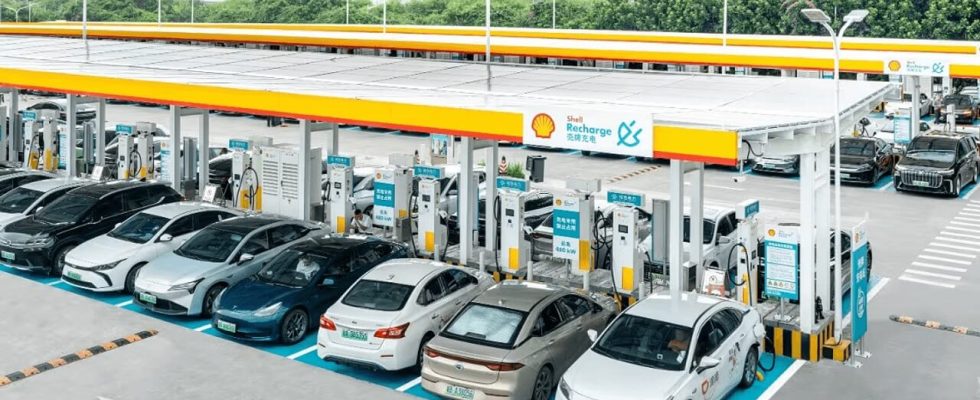Chinese automaker Build Your Dreams (BYD) and global energy giant Shell jointly unveiled the world’s largest electric vehicle (EV) charging station in Shenzhen, China. Called the Shell Recharge Shenzhen Airport EV Station, this groundbreaking facility features 258 public fast charging ports, setting a remarkable new standard in electric vehicle infrastructure.
This monumental project is a compelling testament to the evolving strategies of oil companies historically associated with fossil fuels towards the emerging electric vehicle market. It marks a notable departure from the early days of electric vehicle charging networks, which were predominantly pioneered by companies like Tesla.
For context, Tesla has built a significant charging network across the United States. However, even this Texas-based automotive giant has yet to offer a single location with enough chargers to rival the massive hub that launched in Shenzhen. Shell estimates that during trial runs the station can efficiently accommodate more than 3,300 electric vehicles per day.
Naturally, the impact of such a large station on the local power grid is questionable. Amazingly, Shell assures that the facility is designed to be largely self-sustaining and has the capacity to generate up to 300,000 kilowatt hours of electricity through solar panels on the roof.
BYD’s motivation for investing in such a large charging station can be attributed to the highly competitive environment of the Chinese electric vehicle market. BYD’s Song Pro is in direct competition with the hugely popular Tesla Model Y, and this collaboration serves to strengthen BYD’s presence, especially in Shenzhen, where the company has a strong foothold.
Moreover, the insatiable demand for electric vehicles among Chinese consumers is undeniable. Even major international automakers such as Ford have acknowledged that China is leading the global electric vehicle race.
Meanwhile, the United States is gradually expanding its electric vehicle charging infrastructure, with Tesla at the forefront. Major players like Walmart are planning to install thousands of charging stations, and surprisingly, even Subway is joining the race by partnering with GenZ EV Solutions.
Shell’s remarkable new charging station in China sets a new benchmark for what can be achieved in electric vehicle infrastructure. Given the gradual adoption of electric vehicles in the United States, it is unrealistic to expect similar, or even more ambitious, developments on American soil.
Beyond breaking records, the partnership between BYD and Shell represents a strategic move in a competitive market and underlines the changing dynamics in both the automotive and energy sectors. With the global rise in popularity of electric vehicles, we can expect to witness more such collaborations and innovations that will continue to push the boundaries of what is achievable in the electric vehicle ecosystem.
